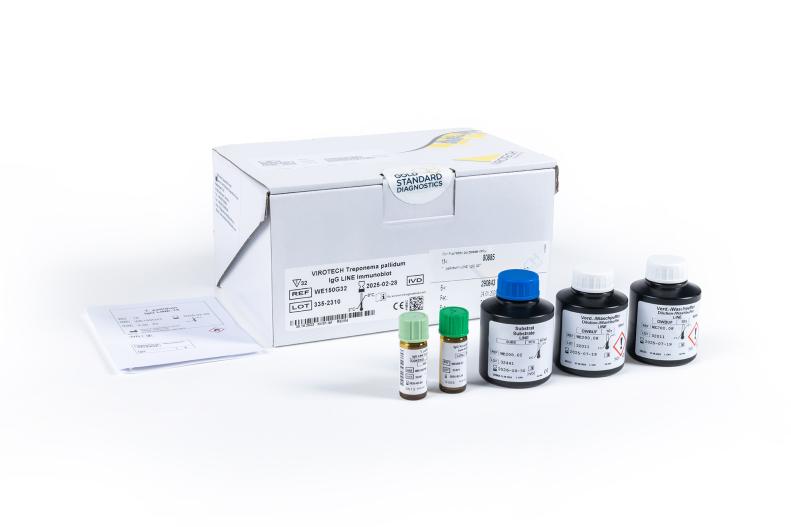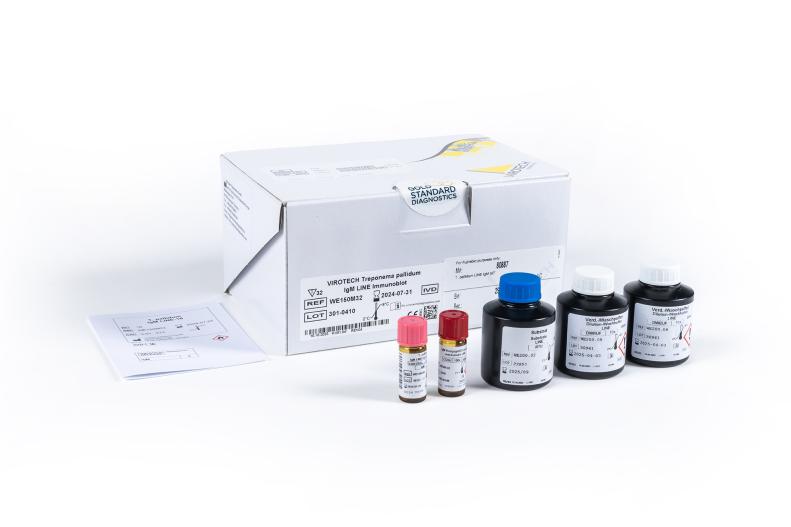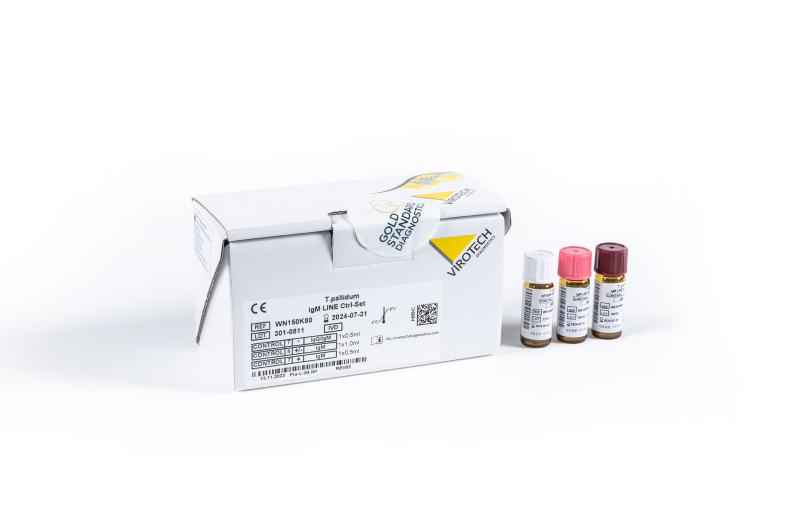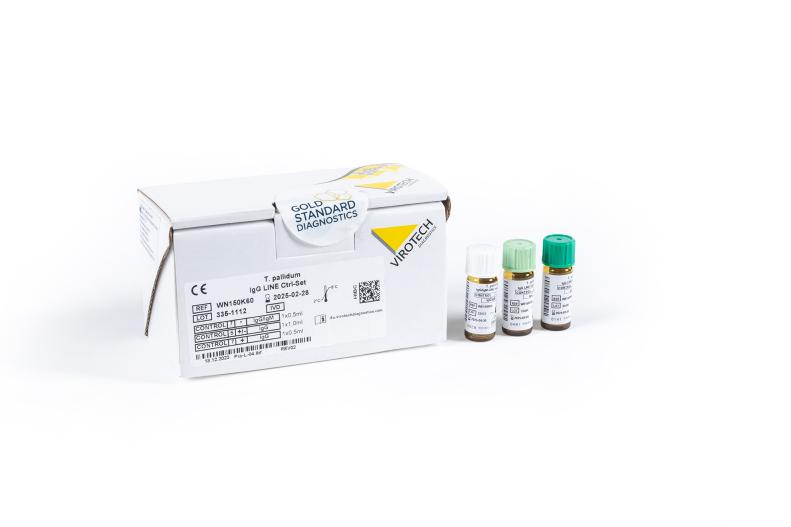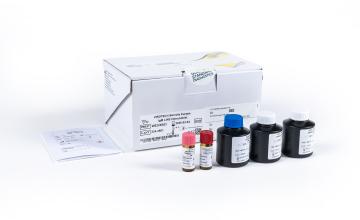Treponema pallidum LINE Immunoblot
Treponema pallidum LINE Immunoblot assay is for in vitro diagnostic (IVD) use for the qualitative detection of Treponema pallidum specific IgG-/IgM-antibodies respectively in human serum. The assay can be used as confirmation test for an extended Syphilis diagnosis, in case the result of the screening test is doubtful (suspicious) or positive.
The Treponema pallidum LINE Immunoblot assay is a strip-based method using recombinant proteins applied in well-defined positions to nitrocellulose strip by a micro-dispensing method.
The presence of specific IgG-respectively IgM antibodies to Treponema pallidum can be detected within 2,5 hrs.
Product number 80882
Product number 80885
Product number 81400
Product number 80886
Product number 80887
Product number 81397

